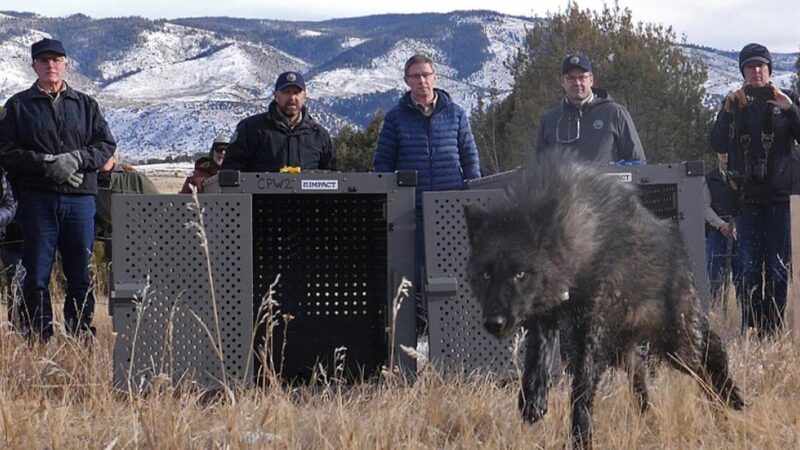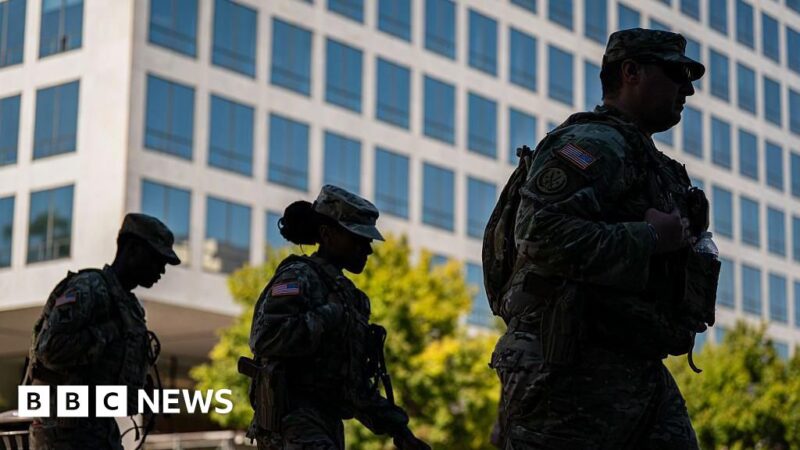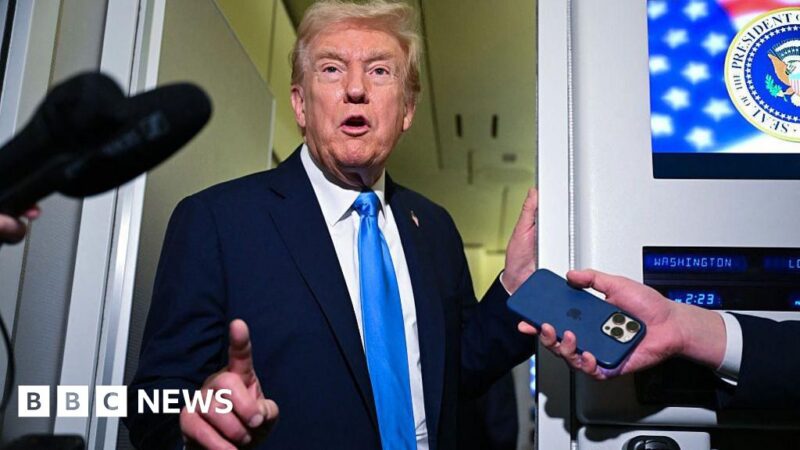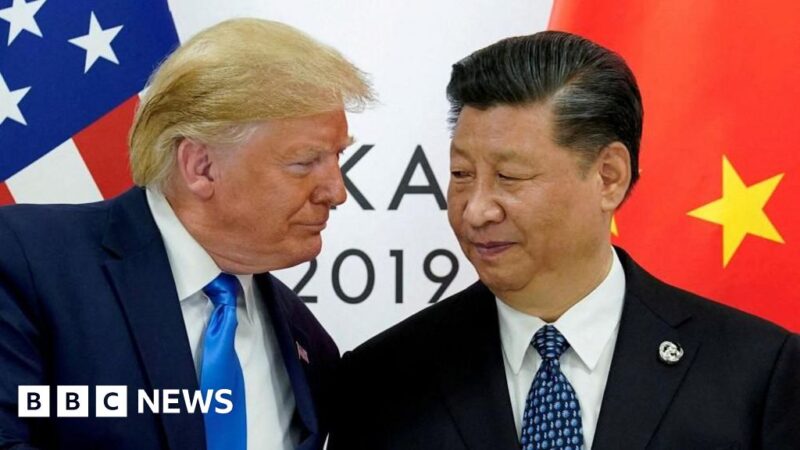Hamas has agreed to mostly relinquishing its 18-year-rule over the Gaza Strip and hand it over to what President Trump has touted as a “Board of Peace.”
JERUSALEM — Hamas accepted most of President Trump’s terms for ending the war in Gaza on Friday, delivering a “Yes, but …” response that agreed to handing over all hostages and relinquishing control of the enclave, but stopped short of the full surrender outlined in the agreement.
The response came the day Trump said that the Palestinian militant group had until Sunday to accept what was essentially a take-it-or-leave-it ultimatum.
“If this LAST CHANCE agreement is not reached, then all HELL, like no one has ever seen before, will break out against Hamas,” wrote Trump on his messaging platform, Truth Social.
After days of what it said was “thorough study” — and intense pressure from its Arab interlocutors in Qatar, Egypt and others — Hamas issued a statement late Friday saying it would release all Israeli hostages, dead or alive, according to “the exchange formula outlined in President Trump’s proposal, provided that field conditions for carrying out the exchange are secured.”
Trump’s deal, which comprises 20 points and amounts to more of a framework than a comprehensive agreement, represents his administration’s most concerted push to not only end the Hamas-Israel war, but achieve a more comprehensive peace in the region.
Upon acceptance from both sides, the agreement says, hostilities must immediately end and aid be allowed into Gaza, where Israel’s months-long blockade has triggered famine. Hamas fighters who lay down their arms would be granted amnesty and Gazans would not be forced to leave the enclave.
The agreement was negotiated with Israel along with a raft of Arab and Muslim nations. Media reports after the deal’s terms were published said Israel had inserted eleventh-hour modifications more in line with the wishes of Israeli Prime Minister Benjamin Netanyahu, who has refused during two years of war any ceasefire deal that would see Hamas remain in power.
His move infuriated Arab nations. Still, they nevertheless issued statements cautiously lauding Trump’s initiative, which he unveiled Monday after meeting with Netanyahu at the White House.
A few hours after Hamas’ affirmative response, Trump wrote on Trump Social that he believed the group was “ready for a lasting PEACE,” adding “Israel must immediately stop the bombing of Gaza, so that we can get the Hostages out safely and quickly!”
“Right now, it’s far too dangerous to do that. We are already in discussions on details to be worked out,” he said. “This is not about Gaza alone, this is about long sought PEACE in the Middle East.”
The deal stipulates Israel will release 1,700 Gaza residents detained by Israel after Oct. 7, 2023, along with some 250 Palestinian prisoners serving life sentences. It gives Hamas 72 hours to release the remaining 48 hostages, 20 of whom are still alive.
Hamas also agreed to another Trump condition, all but relinquishing its 18-year-rule over the Gaza Strip and handing it over to what Trump said was a body of “technocratic” Palestinians overseen by a “Board of Peace” to be headed by Trump and former British Prime Minister Tony Blair.
But Hamas’ acceptance Friday fell short of what could be an essential point for Israel: The notion of surrendering its weapons.
Through Trump’s agreement stipulates the group should disarm and not be involved in any future governance, Hamas has long insisted it would hand over its weapons only as part of a deal that would lead to an independent Palestinian state — a position it reiterated again in its Friday statement, saying that any other issues would be discussed through a comprehensive national Palestinian framework that would include Hamas.
“Regarding the future of the Palestinian issue, this is not a matter of Hamas alone. Hamas is a part of the Palestinian people, but it’s not alone,” said Moussa Abu Marzouk, a top-ranking Hamas official, speaking to Qatari broadcaster Al Jazeera after the release of Hamas’ statement.
Abu Marzouk also emphasized the logistical difficulties the group faces in gathering all the remaining hostages within the 72-hour time frame, describing the condition to be “unreasonable.” He added that there would need to be further negotiations to specify withdrawal lines.
The response, said Bader Al-Saif, a professor of history at Kuwait University, was “in the same style of the offer it received — vague and incomplete.”
“We have a quasi response to a quasi offer — one in need of more details, guarantees and enforcement ability on both Hamas and Israel,” he said, adding that Hamas was throwing the ball back into Israel’s court, knowing the divisions within the Israeli government over any plan that falls short of annihilating the group and excising it from any future negotiations.
Netanyahu’s government is composed of a fractious coalition that relies on hard-right figures to have sufficient numbers for its survival. Those figures want Netanyahu to continue the war until Hamas is destroyed and the territory of Gaza given over to settlements.
Other Israelis point to Israel’s growing isolation with every day of the war’s passing, with the U.N., rights and aid groups and governments, including Western allies of the U.S. and Israel, accusing Israel of committing genocide in the enclave. Israel denies the charge.
With Hamas’ “conditional acceptance,” said Mouin Rabbani, a nonresident fellow at the Qatar-based Center for Conflict and Humanitarian Studies, negotiations could be on a potential crash course.
“It’s crunch time,” Rabbani said. “Hamas says, ‘We accept the proposal if the following issues are clarified to our satisfaction.’
“We’ll now find out if the U.S. accepts entering discussions for these clarifications, or that Israel will persuade the Americans that Hamas has rejected it and the genocide should continue in full force.”
Hamas’ action comes just days before the second anniversary of the Oct. 7, 2023, attack that launched the conflict. On that day, Hamas militants stormed into southern Israel, killing around 1,200 people and kidnapping 251 others. Israel’s response has been punishing, leaving vast portions of Gaza in ruins; more than 66,000 Palestinians have been killed, according to Gaza health officials.





